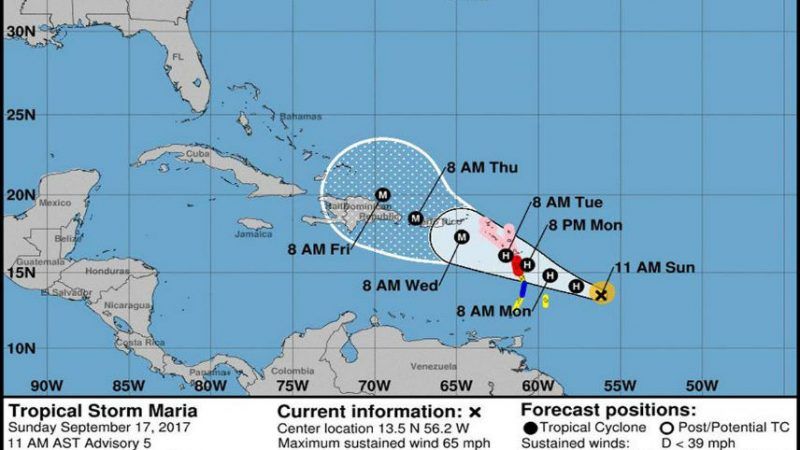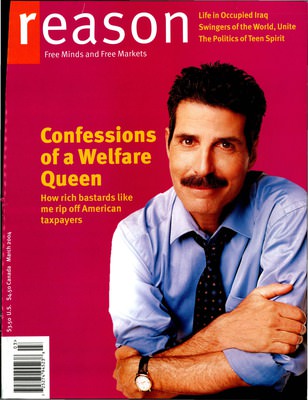Stop Encouraging People to Live in Dangerous Places
Who will have the courage in the face of tragedy to change the government's disastrous policies?


There are few things as distressingly predictable as our federal government's (and national media's) idiotic natural-disaster politics. Most every rational observer who has looked closely at government policy will tell you that the state's serial intervention in insurance markets has encouraged people to build in dangerous areas they otherwise would not, a moral hazard which is then compounded by post-calamity bailout packages politicians compete with one another to add zeros to, while the few straggling heretics are ritually shamed until next time. As I mentioned when interviewing our own Ron Bailey, "It's very, very difficult, people pay attention to these stories precisely when there's a catastrophe, and that's when their appetite for hearing about preserving perverse incentives and government waste is at its all-time lowest."
And so today I have a piece in the L.A. Times, arguing that "Now's the time to talk about flood insurance, and moral hazard." This is how it starts; I have inserted brackets to reflect the differing style guides of Spring Street and Libertopia:
Q: What do you call a congressman who votes against emergency aid for hurricane victims?
A: A "piece of [shit]"
Sure, the Northern Kentucky Chamber of Commerce later apologized for that particular characterization of the libertarian-leaning Rep. Thomas Massie (R-Ky.), who was one of just three members of the House of Representatives brave and/or foolish enough to vote against the $7.85-billion Hurricane Harvey relief bill. But generally speaking, this is how the public treats heretics who oppose blank checks during times of crisis.
That's a shame because the Scrooges have a point, even if you don't share their (and my) concern over a national debt that zoomed past the $20-trillion mark last week. The fact is that existing government policy encourages too many people to live in harm's way.
Read the whole thing here. Then check out Katherine Mangu-Ward's, "7 Things Donald Trump Shouldn't Do After Hurricane Harvey."
Editor's Note: As of February 29, 2024, commenting privileges on reason.com posts are limited to Reason Plus subscribers. Past commenters are grandfathered in for a temporary period. Subscribe here to preserve your ability to comment. Your Reason Plus subscription also gives you an ad-free version of reason.com, along with full access to the digital edition and archives of Reason magazine. We request that comments be civil and on-topic. We do not moderate or assume any responsibility for comments, which are owned by the readers who post them. Comments do not represent the views of reason.com or Reason Foundation. We reserve the right to delete any comment and ban commenters for any reason at any time. Comments may only be edited within 5 minutes of posting. Report abuses.
Please to post comments


Brownie, you're doin' a helluva job.
Most every rational observer who has looked closely at government policy will tell you that the state's serial intervention in insurance markets has encouraged people to build in dangerous areas they otherwise would not, a moral hazard which is then compounded by post-calamity bailout packages
The principle is one thing, but people have been building and living in these areas for decades, if not hundreds of years now and the primary reason they've done so is because these areas were also ideal locations for water-borne trade. I doubt removing government meddling in the insurance markets would result in a massive population resettlement further inland.
"...I doubt removing government meddling in the insurance markets would result in a massive population resettlement further inland...."
You may well be right, but at least I wouldn't be paying for it anymore.
Oh yes you would. There simply wouldn't be an underfunded fake insurance plan to underwrite it. We'd all just be paying the full tab. Like every other bailout.
Chumps r us.
What might happen is less rebuilding after disasters. After all, without government subsidized flood insurance, the number of people who could afford to rebuild would drop dramatically.
I think you'd see a new type of home become far more common. One that can take the flooding, wind and storm surge. Similar to the way people built near flood plains before insurance. Necessity is the mother of all invention and the government took away necessity.
I doubt removing government meddling in the insurance markets would result in a massive population resettlement further inland.
That may be the case but the style and price of the buildings would be dramatically different. I have witnessed the change up and down the Atlantic coast sine the 1970's and it is very obvious.
Only seventeen links in your post, Welsh? Three more and you would have had twenty, which is a nice, even number.
Although seventeen is a prime number. Okay, maybe you aren't all bad.
They only want you when your seventeen...
you're
Yup. End the federal flood insurance program and make these people pay fair market prices for building in high risk areas.
Better still; end the federal (everything) program.
It's all f-----g optics. People suffer tragedies every day without running to the feds for money. But put many of them in the one place and suddenly you're a monster for opposing running to the feds for money.
And there are 0 negative short term consequences for deficit spending, either economically or politically. It's only people devoted to the principles of Government financing which will say No...apparently, all three of them.
^THIS
Q: What do you call a congressman who votes against emergency aid for hurricane victims?
A: A "piece of [shit]" "Darling"
The is pretty much a road to serfdom situation.
First, fed government pays off in major flooding disasters.
Then, it starts paying off in lesser flooding disasters.
Then, it starts offering "flood insurance" but fails to price it appropriately such that some locations are insanely subsidized and other locations are insanely overcharged relative to risk.
Then, a major flood disaster hits location where "flood insurance" was insanely overcharged relative to risk, and lots of (heretofore rationally) uninsured people clamor for relief.
Then, fed gov pays off the uninsured, but it starts regulating future land use everywhere.
Then, individuals who lack political connections can't build a beach house or a lake house even if they were fully willing to personally take the risk or pay a market-based premium for flood insurance. Government cannot allow any development in a risky location because bureaucrats understand most who build will clamor for relief when disaster inevitably occurs again.
Voila: government controls land use. And it does so in a way that does not achieve highest and best use.
This is why demanding small limited government is a great fix to these run away consequences that people always seem to not foresee.
Its also why when you tell a lefty "small government is the answer" to whatever bloated government nonsense they are advocating, they get so mad. You are providing a square/round/star/whatever peg into whatever shape hole they are trying to change it to.
Small government really does minimize most of the problems we have or will have with government.
The problem with small government is that it is hungry.
Don't feed it after midnight.
Or before.